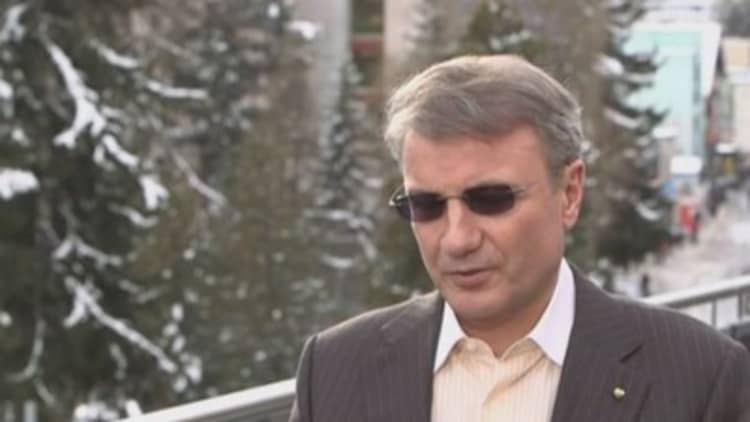Russia's plans announced Wednesday to bolster lending to the real economy and create a "bad bank" echo some of the post-credit crisis actions of Western governments. But concerns are already being voiced that the measures are already too little, too late for its economy.
Wednesday's measures include 300 billion rubles from the National Wealth Fund, the country's sovereign wealth fund, to state development bank VEB to help encourage lending to businesses and a 1 trillion rubles boost to the banking sector via the sale of Russian debt. Proposals for the formation of the "bad bank" plan – whereby Russian lenders' non-performing loans are transferred to another bank, thereby hopefully freeing up lending - are to be submitted by Friday.
The fragilities of some Russian banks are already well-known amongst investors. The plunging value of both the Russian rouble and oil has hit the entire Russian economy – particularly businesses which have borrowed in foreign currencies in recent years. As domestic and international investors withdrew their money from the country, capital outflows more than doubled between 2013 and 2014.
The Central Bank of Russia (CBR) is expected to hold interest rates on Friday, after drastically and unexpectedly raising them to 17 percent last month.

Christian Clausen, CEO of Swedish bank Nordea, which has about 2 percent of its lending to Russian companies, told CNBC his company was "gradually reducing" its lending there.
"We have a very strong business in Russia. Stress tests show us we have a strong credit quality. The geopolitical risk is still uncertain," he said.
The recent downgrade of Russia's sovereign debt by Standard & Poor's to "junk" status didn't seem to particularly phase markets – possibly because it had been expected, possibly because there aren't very many negative shocks left for Russian investors.
Thursday's meeting of European Union foreign ministers, where harsher sanctions against Russia will be top of the agenda, may have even more potential to rattle markets.
- By CNBC's Catherine Boyle.



